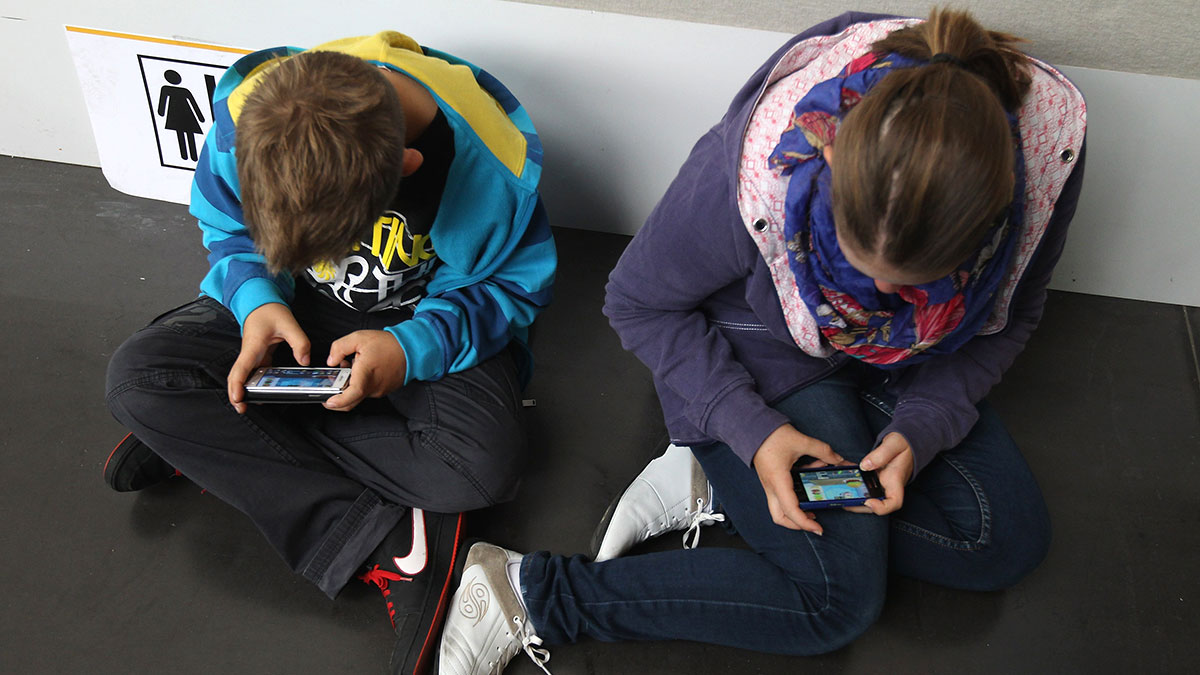We asked a gaming boss about in-app purchases and screen time

One more minute ... arguments over screen time and in-app purchases are the bane of life as a parent. Picture: Getty
Parents worried about screen time and in-app purchases should sit with their kids and understand how playing games makes them feel, says the boss of ASX-listed game developer iCandy Interactive.
iCandy (ASX:ICI) chief Gerald Tock recently spoke to Stockhead about his business plans for the year ahead and the future of the game industry.
iCandy has just published its 11th mobile game, and saw revenue grow 633 per cent in the 2016-17 financial year compared to the previous period.
In-app purchases and rewarded video advertising are the “two big things in the industry in terms of monetisation right now”, Mr Tock told Stockhead.
“With rewarded video advertising, the way it’s been implemented so far is that you receive a boost in terms of your earnings or certain attributes if you watch a video ad.
“I think about 35 per cent of our revenue comes from video advertising and 65 per cent comes from in-app purchases.”
‘What I’d tell my kids’
Mr Tock — who doesn’t have children, but plans to in the future — said he would “introduce rules” to manage game-playing time for kids.
“One is setting a budget. Being a game developer myself, I do encourage play and exploration, so that’s important. I think setting a budget, as well as limits and boundaries, is important.”
As a gamer, Mr Tock is positive about the benefits of gameplay and believes that understanding the mechanics of video games can help with math and decision-making skills.
When he spoke about time spent on games, he phrased it as creating “play time” rather than limiting “screen time”.
The most important thing Mr Tock said he would do with his children was take an interest in what they were playing and try to understand how it made them feel.
“Talking through, helping the child observe ‘what do they feel when they play certain things?’ I think that’s important,” he said.
“So you’re saying, ‘OK, why does this game make me feel this way?’ And you’re sort of going deeper into the game.
“As you get into the mechanics of the game, then you start to understand things a bit better and you learn the mechanics behind it. You learn things, you learn math.
“So I think setting up boundaries and talking through with my child the play experiences, that’s one thing. And setting limits for spending is another. So perhaps it’s a dollar, or two dollars, or perhaps it’s asking them why they want to make these purchases before they make them.”
Mr Tock said that even with a budget, it was important for parents to make purchases together with their kids at least the first few times.
The trouble with screen time
An article published on The Conversation this week by two UK experts pointed out that it’s not just parents and children who argue over the idea of screen time — it’s also authorities.
And, in fact, they reckon it should be scrapped altogether.
Natalia Kucirkova of the University College London and Professor Sonia Livingstone from the London School of Economics and Political Science said the biggest problem with screen time was that it focused on quantity over quality.
“A screen can refer to an iPad used to Skype their grandparents, a Kindle for reading poetry, a television for playing video games, or a desktop computer for their homework,” they said.
“Most screens are now multifunctional, so unless we specify the content, context and connections involved in particular screen time activities, any discussion will be muddled.”
Another issue was that approaching technology with a view to limit access to it could turn parents into police instead of teachers.
“An overwhelming focus on risk and harm creates fear, underplays possible benefits of technology, and limits parents’ role to policing and protecting rather than mentoring and enabling,” they said.
iCandy listed on the ASX early last year and is currently trading around 8.5c, with a market cap of almost $4.7 million.
UNLOCK INSIGHTS
Discover the untold stories of emerging ASX stocks.
Daily news and expert analysis, it's free to subscribe.
By proceeding, you confirm you understand that we handle personal information in accordance with our Privacy Policy.








